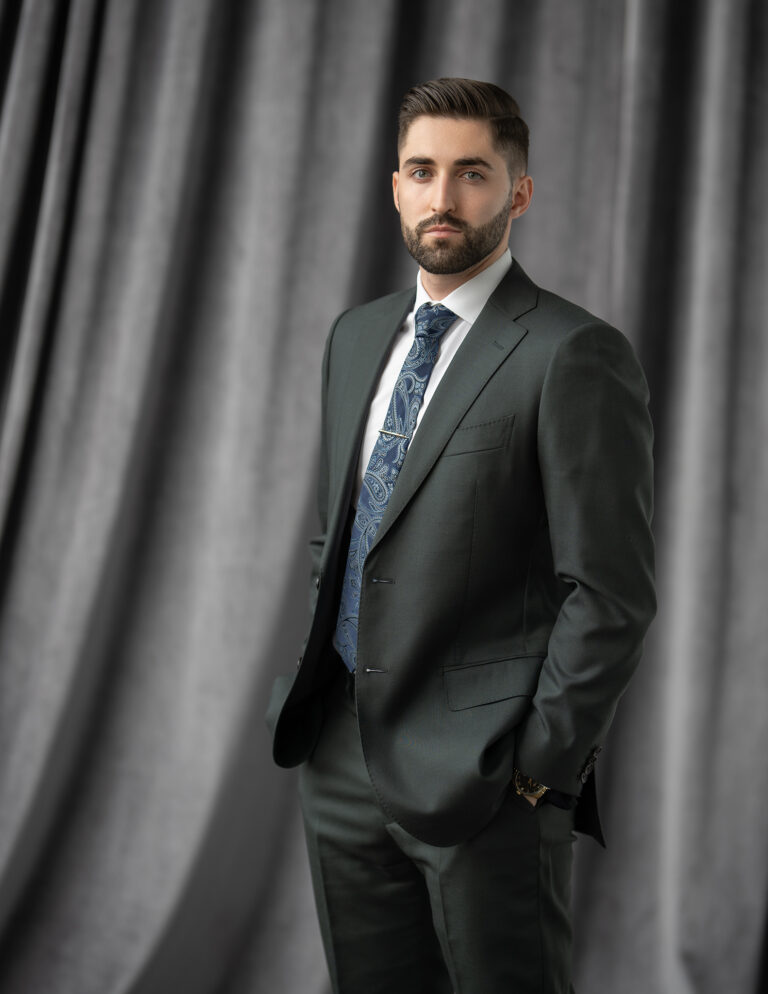Fraud Lawyer Toronto
Toronto Fraud Lawyer, Alex De Boyrie
De Boyrie Law is an experienced fraud law firm in Toronto.
The firm is led by Alex De Boyrie, an experienced fraud lawyer in Toronto. Our mission is to have your charges withdrawn in every instance possible. We will always fight for your rights. Please schedule a free consultation with our team to get in touch with a fraud lawyer in Toronto.
Areas of practice include but are not limited to: Bail hearings, assault, thefts and robbery, drug related offences, impaired driving, youth offences, fraud law, weapons & firearms.
We represent clients for criminal and quasi-criminal matters, in Toronto and the Greater Toronto Area.

Associations






Criminal Defence
Our focus is on the representation of our client’s interests in criminal and quasi-criminal matters, in Toronto and the Greater Toronto Area.
Our Strategy
To provide our clients with the best and strongest defence available no matter what the circumstances may be.
A guide to working with a fraud lawyer in Toronto
Working with a fraud lawyer in Toronto can be a complex process, but with the right guidance, you can navigate it successfully. Here is a detailed guide to help you understand the process of working with a fraud lawyer in Toronto.
Before you start working with a fraud lawyer, it is important to understand the basics of fraud law in Canada. Fraud is defined as the act of deceiving someone in order to gain an unfair advantage. It can take many forms, including financial fraud, identity theft, and fraud in the workplace.
Finding a qualified fraud lawyer in Toronto is essential to ensure that your case is handled properly. Look for a lawyer who has experience and expertise in handling fraud cases, and is licensed to practice law in Ontario.
Once you have found a fraud lawyer that you feel comfortable working with, schedule a consultation to discuss your case. During the consultation, the lawyer will ask you questions about the fraud, and will provide you with an overview of the legal process.
You can schedule a free consultation with a fraud lawyer in Toronto right here.
Your lawyer will need evidence to build a strong case. This may include documents, financial records, and witness statements. Make sure you provide your lawyer with all relevant evidence as soon as possible.
Your lawyer will work with you to prepare for court. This may include preparing witness statements, reviewing evidence, and preparing legal briefs. It is important to work closely with your lawyer and follow their guidance to ensure that you are prepared for court.
Once your case goes to court, it is important to attend all court appearances. Your lawyer will be with you every step of the way to provide guidance and support.
After the court case is finished, it is important to follow-up with your lawyer to ensure that all legal matters have been resolved.
By following these steps, you can work effectively with a fraud lawyer in Toronto to build a strong case and seek justice. Remember to communicate clearly with your lawyer, and to be patient as the process can take time.
Legal Consequences of Fraud In Toronto
Committing fraud in Toronto can result in both criminal and civil legal consequences. Criminal fraud charges can result in fines and imprisonment, while civil fraud can result in financial penalties and damages. Depending on the severity of the fraud and any previous criminal history, the penalties can be quite severe. Additionally, a criminal conviction for fraud can have a negative impact on an individual’s reputation and future job prospects. It is important to note that fraud is a serious crime and if you suspect you may be involved in fraudulent activity, it is recommended that you seek legal advice.
Fraud Over $5,000 in Toronto
Fraud over $5,000 in Toronto is considered a serious criminal offence and can result in severe legal consequences. If convicted, an individual may face a maximum penalty of 14 years in prison. The specific sentence imposed will depend on the facts of the case, the offender’s criminal history, and the discretion of the judge.
In addition to imprisonment, an individual convicted of fraud over $5,000 may also be ordered to pay restitution to the victims of the fraud, and may be subject to fines and court-ordered community service. Furthermore, a criminal record for fraud can have a significant negative impact on an individual’s future job prospects and reputation.
It’s important to note that Fraud over $5,000 is a indictable offence in Canada, which means that the Crown prosecutors have the option of proceeding either by summary conviction or by indictment. This decision will be based on factors such as the nature of the fraud, the evidence against the accused, and the accused’s prior criminal record.
It is highly recommended that anyone facing fraud charges seek legal representation from a qualified criminal defence attorney in order to understand the charges and potential consequences and to help mount a defence.
Fraud Under $5,000 in Toronto
Fraud under $5,000 in Toronto is considered a less serious criminal offence than fraud over $5,000, but it can still result in significant legal consequences. If convicted, an individual may face a maximum penalty of two years less a day in prison, and/or a fine of up to $5,000.
In addition to imprisonment and fines, an individual convicted of fraud under $5,000 may also be ordered to pay restitution to the victims of the fraud, and may be subject to court-ordered community service. A criminal record for fraud can also have a negative impact on an individual’s future job prospects and reputation.
Fraud under $5,000 is considered a hybrid offence in Canada, which means that the Crown prosecutors have the option of proceeding either by summary conviction or by indictment. This decision will be based on factors such as the nature of the fraud, the evidence against the accused, and the accused’s prior criminal record.
It is important to note that a conviction for fraud can have serious legal and personal consequences, and anyone facing fraud charges should seek legal representation from a qualified criminal defence lawyer in order to understand the charges and potential consequences, and to help mount a defence.
Frequently asked questions for fraud lawyers
Fraud is a serious crime that can have severe consequences for those who are accused of it. In Toronto, as in any major city, fraud can take many forms and can be committed by individuals, businesses, and even government officials. If you find yourself facing fraud charges in Toronto, it is essential to have an experienced fraud lawyer on your side. In this article, we will discuss some of the reasons why you need a fraud lawyer in Toronto.
First and foremost, a fraud lawyer in Toronto can help you navigate the complex legal system. Fraud cases can be incredibly complicated, involving multiple parties, large amounts of evidence, and intricate legal procedures. An experienced fraud lawyer will have the knowledge and expertise to guide you through the process and help you understand your rights and options.
Secondly, a fraud lawyer can help you build a strong defence. Fraud charges can result in severe penalties, including fines, imprisonment, and a criminal record. A fraud lawyer can help you build a defence that will challenge the prosecution’s case and help to reduce the severity of the charges against you. A fraud lawyer can also negotiate with the prosecution and work towards a plea bargain, which can help to minimize the penalties you face.
Thirdly, a fraud lawyer can help you protect your reputation. Fraud charges can have a serious impact on your reputation and can damage your career and relationships. A fraud lawyer can help you to protect your reputation by managing the media, communicating with the public, and working to clear your name.
Finally, a fraud lawyer in Toronto can help you to understand the potential financial impact of the charges against you. Fraud cases can be incredibly expensive and can result in significant financial losses. A fraud lawyer can help you to understand the potential costs of the case and to protect your financial interests.
In conclusion, if you find yourself facing fraud charges in Toronto, it is essential to have an experienced fraud lawyer on your side. A fraud lawyer can help you navigate the complex legal system, build a strong defence, protect your reputation, and minimize the financial impact of the charges against you. If you are facing fraud charges, don’t hesitate to contact a fraud lawyer for help.
A fraud lawyer in Toronto may be needed by individuals or businesses who have been accused of committing fraud or those who have been the victims of fraud. Fraud is a serious crime that can have severe consequences, and it is essential for those facing fraud charges or those who have been affected by fraud to seek legal representation.
Individuals who may need a fraud lawyer in Toronto include those who have been accused of embezzlement, forgery, identity theft, or any other type of fraud. These individuals may face criminal charges and, if convicted, could face significant fines and prison time. A fraud lawyer can help to defend against these charges and ensure that the individual’s rights are protected throughout the legal process.
In addition, companies may also need a fraud lawyer if they are accused of committing fraud, such as securities fraud, insider trading, false advertising, or other white collar crimes. An attorney can help to build a defence against these charges, negotiate with prosecutors, and work to minimize the potential penalties and reputational damage.
In any case, it is important to seek the help of an experienced fraud lawyer as soon as possible. The sooner legal representation is retained, the better the chances are of achieving a favorable outcome. An attorney can help to protect an individual’s or business’s rights, provide guidance throughout the legal process, and work to achieve the best possible outcome.
In conclusion, anyone facing fraud charges or anyone who has been the victim of fraud in Toronto may need a fraud lawyer. An attorney can help to protect rights and interests, investigate the fraud, and take legal action to recover any losses and hold the responsible parties accountable. It is essential to seek the help of an experienced fraud lawyer as soon as possible.
If you are in need of a fraud lawyer in Toronto, it is important to take the time to find an experienced professional who can effectively represent your case. Fraud cases can be complex and require a lawyer who has the knowledge and skills to navigate the legal system and protect your rights. Here are some tips to help you identify an experienced fraud lawyer in Toronto.
Look for a lawyer with a focus on fraud cases: Not all lawyers have experience handling fraud cases. Look for a lawyer who specializes in fraud law and has a track record of successfully representing clients in these types of cases.
Check for experience and qualifications: Look for a lawyer who has several years of experience in the field of fraud law and has the qualifications and certifications to back up their expertise.
Look for a lawyer with knowledge of local laws and regulations: Fraud laws can vary from state to state, so it’s essential to find a lawyer who has a thorough understanding of the laws and regulations in Toronto.
Get references and read reviews: Ask the lawyer for references from past clients, and look for online reviews of the lawyer’s services. This will give you an idea of their reputation and the level of service they provide.
Consider the lawyer’s communication and responsiveness: A good fraud lawyer will be able to explain complex legal issues in a way that you can understand and will be responsive to your calls and emails.
Check the lawyer’s professional organizations and affiliations: Memberships in professional organizations like the Canadian Bar Association or the Ontario Bar Association, indicate that the lawyer is committed to staying current in their field.
By following these tips, you can be confident that you are hiring an experienced and qualified fraud lawyer who can effectively represent your case in Toronto. Remember that, a good lawyer is someone who can guide you through the legal process, protect your rights and help you get the best outcome possible.
If you have been convicted of fraud in Toronto, you may have the option to appeal the decision. The appeals process can be complex and time-consuming, so it is important to understand the steps involved and to seek the advice of a criminal defence lawyer.
The first step in appealing a fraud conviction is to file a notice of appeal with the Ontario Court of Appeal. This notice must be filed within 30 days of the conviction, and it must be served on the Crown attorney and any other parties involved in the case.
Once the notice of appeal has been filed, the next step is to obtain a transcript of the trial proceedings. This transcript will be used as the basis for the appeal and will provide the Court of Appeal with a record of the evidence presented at trial.
After the transcript has been obtained, the appellant (the person appealing the conviction) must file a factum, which is a written document outlining the grounds for the appeal. The factum must be filed within 30 days of the transcript being made available.
The Crown attorney will also file a factum in response to the appellant’s factum. The Court of Appeal will then schedule a hearing date for the appeal, at which both sides will present their arguments and the Court of Appeal will make a decision.
In general, an appeal can only be based on errors of law made by the trial judge, such as incorrect instructions to the jury, or errors in the admission or exclusion of evidence. It is important to note that the Court of Appeal will not re-evaluate the evidence presented at trial and will only consider whether the trial judge made legal errors that affected the outcome of the case.
If the appeal is successful, the conviction will be overturned and a new trial may be ordered. However, if the appeal is unsuccessful, the conviction will stand.
It is important to note that the appeals process can be complicated and time-consuming, and the chances of success can be low. It is highly recommended that you seek the advice of a criminal defence lawyer before deciding whether to appeal a fraud conviction.
The above information is not legal advice. It is important to consult with a lawyer who can provide you with the best legal advice and guidance.
If you are facing fraud charges in Ontario, it is important to seek legal representation as soon as possible. A criminal defence lawyer can advise you on your rights and options, and help you build a strong defense against the charges. They can also help you navigate the criminal justice system and represent you in court. It is also important to not speak to anyone else regarding your case until you have legal representation.
The penalties for committing fraud in Toronto can vary depending on the specific circumstances of the case and the severity of the fraud. Possible penalties include fines, imprisonment, and restitution (paying back the money or property obtained through fraud). In addition, a conviction for fraud can also have negative consequences for an individual’s reputation and career.
Fraud is a criminal offence that occurs when an individual intentionally deceives another person or organization in order to gain something of value, such as money or property. In Ontario, fraud is considered a serious crime and is punishable by fines, imprisonment, and restitution.
There are several different types of fraud that are considered criminal offences in Ontario. These include:
Identity fraud: This occurs when an individual uses another person’s personal information, such as their name, address, or credit card information, to commit fraud. This can include opening bank accounts or credit cards in someone else’s name, or using someone else’s identity to obtain a loan or credit.
Investment fraud: This occurs when an individual misrepresents information about an investment in order to deceive others into investing their money. This can include providing false information about a company or stock, or promising unrealistic returns on an investment.
Insurance fraud: This occurs when an individual makes false claims or provides false information to an insurance company in order to obtain money or benefits to which they are not entitled. This can include exaggerating the extent of an injury or damage, or making a claim for something that did not happen.
Internet fraud: This occurs when an individual uses the internet to commit fraud. This can include online scams, such as phishing scams or fake online stores, as well as hacking into other people’s accounts or computer systems.
Fraud against the government: This occurs when an individual uses false information or makes false claims to the government in order to obtain benefits or services to which they are not entitled. This can include falsely claiming to be a Canadian citizen in order to receive government benefits, or making false claims for tax refunds.
It’s important to note that even an attempt to commit fraud can result in charges and penalties. Penalties for fraud can vary depending on the specific circumstances of the case and the severity of the fraud. Possible penalties include fines, imprisonment, and restitution (paying back the money or property obtained through fraud). In addition, a conviction for fraud can also have negative consequences for an individual’s reputation and career.
The legal system of Ontario takes these crimes very seriously and it’s important to be aware of the consequences and penalties of committing fraud. If you or someone you know has been accused of fraud, it’s important to seek legal advice as soon as possible.
Yes. De Boyrie Law offers free consultations for all of our legal services.
You can book a free consultation right here.
Toronto fraud lawyer reviews
Schedule a free consultation with a fraud lawyer in Toronto
We have numerous contact options available.
For immediate assistance please call us at 416-727-1389
If you don’t need immediate assistance we recommend that you submit a contact form below.
Contact Us
Located in the heart of downtown Toronto
Our firm is conveniently located in downtown Toronto.
De Boyrie Law
100 King Street West, Suite 5600
Toronto, Ontario
M5X 1C9
416-727-1389
Fraud lawyer blog posts
Fraud Lawyer Mississauga: Meet Alex De Boyrie
Protect your future with Alex De Boyrie, an experienced fraud lawyer in Mississauga. Navigate fraud cases with confidence and secure your rights. When legal troubles arise, particularly in cases of fraud, having a competent lawyer by your side is paramount. If you find yourself embroiled in a fraud case in...
Read MoreWhy You Need A Fraud Lawyer In Toronto
Fraud is a serious criminal offence that can have severe consequences for those who are accused of it. If you are facing fraud charges in Toronto, it is important to have a skilled and experienced fraud lawyer on your side. There are many different types of fraud, including financial fraud,...
Read MoreI’m Being Charged With Fraud In Toronto, What Should I Do?
If you are facing charges for fraud in Toronto, it is important to take the matter seriously and take steps to protect your rights and interests. The following are some key things to consider and do if you are being charged with fraud in Toronto: It’s important to understand that...
Read MoreThe History of Fraud Lawyers in Toronto
The history of fraud law in Toronto can be traced back to the early days of the city’s settlement by Europeans. In the 19th century, fraudulent activity was primarily dealt with through common law and local bylaws. These early laws were primarily focused on protecting the economic interests of merchants and traders, and were enforced by local magistrates.
As the city grew and became more industrialized, the need for more comprehensive fraud laws became increasingly apparent. In the late 19th and early 20th centuries, the Canadian government began to pass federal legislation to address fraud, including the Criminal Code of Canada and the Canadian Securities Act.
In the 20th century, Toronto police and law enforcement agencies began to take a more proactive approach to investigating and prosecuting fraud cases. This included the establishment of specialized units, such as the Financial Crimes Unit and the Economic Crimes Unit, which focused specifically on financial fraud and white-collar crime.
The modern era of fraud law in Toronto has seen a number of high-profile cases, including the Bre-X mining scandal in the 1990s, and the Nortel Networks fraud case in the early 2000s. These cases had a significant impact on the city’s business community, and led to increased public awareness of the harms caused by fraud.
In recent years, Toronto police and law enforcement agencies have continued to focus on combatting fraud through education, awareness campaigns, and partnerships with private sector organizations. They also use advanced technology and forensic accounting methods to detect and investigate fraudulent activities.
Overall, the history of fraud law in Toronto has been shaped by the city’s growing economic importance and the need to protect the interests of its citizens. Today, Toronto remains a leader in the fight against fraud, with strong laws and enforcement efforts in place to protect the public from this type of criminal activity.



